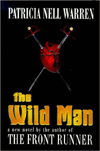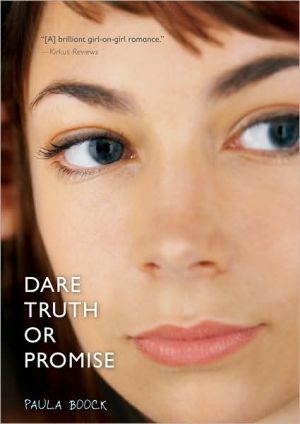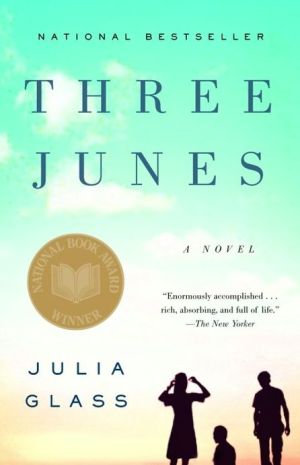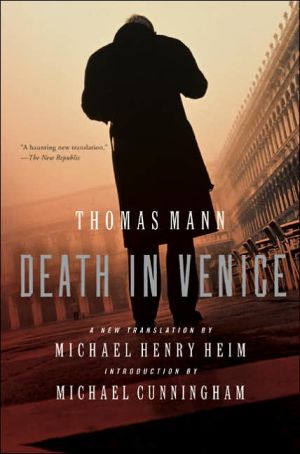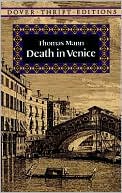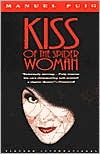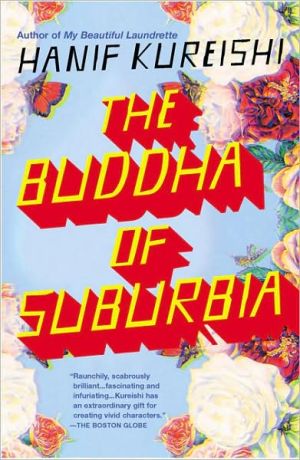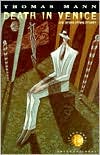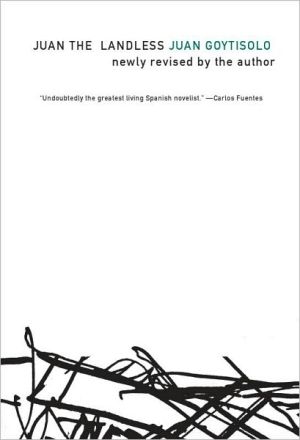Wild Man
Search in google:
\ \ Chapter One\ \ \ My second bull of the afternoon fell over on his side, with my sword in his heart. He was finished, and so was I.\ By then I'd killed almost 500 bulls in my 9-year career. Yet I remember that moment and that bull, because I was in such a shocking state of mind. He was an ugly bull, black and white pinto, with horns like little bananas. My sword-hilt cast a shadow across his bloody shoulders. As the light died in his eyes, his legs still vibrated, and his tail flailed as he voided helplessly, the runny shit of death. The wet tongue trailed from his wet muzzle, caked with sand.\ It had been a quick, clean kill—my best since the goring in Écija. The curving blade had cut the aorta behind his heart. No blood showed at his mouth, but a hot spurt had jetted up the blade, bathing the inside of my sleeve. That was the way it was supposed to happen—red spurt into satin sleeve, the perfect symbol of making love. It was what my fans expected of me ... what I demanded of myself.\ Now, only now, the fierce trembling hit me.\ It was that last Sunday in May 1969 on the north coast of Spain. Springtime coolness should have refreshed me and given me strength—sea breezes and mountain airs, there in the green Spain. Dry Spain was my motherland—the central plateau, where fields already fried in African breezes at that time of year. But today the cool weather hadn't helped at all. My satin suit of lights weighed on me like a suit of armor, and sweat stung my eyes now. I blinked, trying to see.\ "Two ears!""No, the tail!" "The tail!" Fans were arguing about what trophies I should get.\ The worst thing was my bad leg—it felt nerveless and spastic, and hurt like the devil. But I didn't dare show weakness. Each step I'd made in front of the bull had been fiercely willed. As I pulled my sword out of the carcass, the light weapon felt heavy as destiny. I didn't dare wipe my face on my sleeve. Standing there alone, with everybody's fluttering handkerchiefs dizzying me, the rich folks on the shady side of the bullring and poorer folks on the sunny side, I noticed that my hand was empty. My sword-man had taken the weapon from my hand. Was time playing tricks on me?\ I felt alone, and naked.\ A torero does what he does while dressed from head to foot in heavy silk and embroidery. In a world inured to nude celebrities and pornography, I have my way with a crowd without even opening my fly. At most, the crowd gets to see a bit of skin through torn clothes, if the bull catches me. They may see me vulnerable—wounded, in shock, carried to the infirmary in other men's arms. At worst they see the occasional matador dead in a black coffin and the traditional blaze of candles. But naked? Never. Juan Belmonte had scandalized everybody by posing nude for a sculptor, back in the bad old days of the Second Republic, but few cared to remember he'd done that. So why did I feel so naked that day?\ Now, up in the officials' balcony, the mayor was signaling for trophies. The grinning ringman went to work with his knife, and held the severed things in front of me. Two ears and the tail.\ Pull yourself together, Antonio, I told myself.\ From bleachers and balconies of the bullring, the crowd's roar poured over me, suffocating me like a sandstorm. It was their first afternoon of bulls that year, and they were eager for excitement. For once, they were giving me the crazy roar, like they'd done for Manolo Benitez on the previous bull. My sensational colleague from Córdoba had cut two ears and tail too, and the crowd had gone mad. Now they had gone even crazier for me.\ "Give him the whole bull," some guy was screaming.\ Two ears and the tail, man. It might rate a few seconds on the TV news. The EFE wire service would say Antonio Escudero also triumphed in smaller type, under the big headline EL CORDOBÉS TRIUMPHED IN SANTANDER. God knows I needed publicity. My comeback had fallen flat so far. The goring in Écija 13 months ago had taken more out of me than I'd thought. The comeback started at Jaén—I was terrible there. Then the Sevilla fair, where I got one ear. Sevilla fans were exacting—one ear was a major concession. Then the San Isidro fair in Madrid last week, where I felt frozen and couldn't deliver. The Madrid fans whistled and threw beer bottles at me. Every afternoon, I was as depressed and tired as now.\ And there were questions haunting me. How long would the bad leg obey me? Could I stop the downdrift of my career? My profession was my lover, my Muse. I was losing my one passion and inspiration—the only thing that I had ever been able to possess and adore completely.\ Step forward, leg.\ That's it. Step again.\ Today, from somewhere, not even Earth but from somewhere in the universe, I'd pulled the old bravo rage back into my heart, and willed the leg to work. Desperate and angry, facing a slow bull with little banana horns that would allow me to do some filigrees, I gave the crowd everything. The stripper takes off her clothes, but the torero takes off his safety margin. I had stood a few centimeters from the horn, and held the little cloth behind me, and provoked the bull with my thigh. Only at the last second, as the pinto monster lurched into motion, did I move the cloth forward to catch his eye and pull that banana past my thigh, letting the blood on his shoulders rub off on my fly. Even the bananas can kill you. Like the movie stunt-man, the torero must calculate his chances intelligently. Chaos always lurks in every bull.\ How much longer could I do this? I was almost 30, a full matador for nine years. Already too old and too rich to feel the hunger for bulls any longer. Other hungers gnawed me now. The hunger to stay off the horn, for sure. The hunger to retire, and spend all my time improving my land. The hunger to enrich my life. To know the world better—to travel more outside of Spain. To see more of what people were doing out there in the great world.\ And to feed the big hunger. That one.\ Now I threw back my head and forced myself to stand proud and wild-looking. To look very torero. Wasn't that why they wanted me here in the ring? To be the symbol for all those ecstatic, shouting men? To be the dream for the women? But I wasn't in the ring for other people ... was I? No. I was here for myself. I was here because of the hunger. One of the hungers, anyway. The craving for a destiny of my own—a life of risk and freedom, instead of the suffocatingly safe heritage of the Escuderos.\ My trembling hands held up the trophies to the crowd.\ "Wild man! Macho! Machote túuuu!"\ The loud yell came from a young woman right in the front row in the shade. A girl of these yeah-yeah times. Her embarrassed friends were trying to shut her up.\ Her bold shout, the kind of language that only men were supposed to use, was as shocking to the old folks in the bullring as the "yeah yeah" of rock and roll music that now invaded our borders. The Beatles weren't allowed to perform in Spain, but their smuggled recordings were heard everywhere.\ Now the horse-team was skidding that pinto hulk out of the ring. Shortly, in the municipal slaughterhouse next door, a crew of men would hoist it by the hind legs, skin it and gut it, saw it in half along the spine. Tomorrow morning, in the municipal market, butchers would advertise wild bull meat. Bars would offer appetizers to their male customers—bits of fried testicle on toothpicks. A few yeah-yeah women would daringly nibble them.\ Behind the barrier, the tanned faces and narrowed eyes of my crew questioned me. Bigotes and Manolillo Vandilaz, brothers in their 30s, two of the best subalterns in the business, failed matadors who were good at rescuing me with their capes. Santí and Fermín, the picadors, just as good in their own specialties—broad faces taut in shadow under their big tasseled hats. Braulio, my sword-man and valet. They could see how I'd strained. Beside them was Isaías Eibar, my manager and lawyer. He was worded too.\ Now it was time to make the victory round of the ring.\ Jesus, my right leg really hurt. I'd probably pulled a nerve when I extended my body doing that last breast-pass before the kill. In Ecija the horn had entered my upper thigh, torn the artery, penetrated my pelvis, damaged nerves. If Manolillo hadn't yanked off his tie for a tourniquet, I would have bled to death before they got me to the bullring infirmary. People had stood in line outside to give blood—eight transfusions. The fact was, the doctors had wanted to amputate my leg, but I screamed at them and Isaías screamed at them till they gave me a chance. I was in the Sanitorio de Toreros for four months. Then a year of recovery and therapy, even some help from a soccer trainer, to get back in the ring. And the effort to free myself of need for morphine. Even now I sometimes hungered for the white goddess of ease.\ So I motioned to Bigotes and Manolillo. When they entered the ring, I put my arms across their strong shoulders. These two subalterns had campaigned with me for 8 years, sat at my bedside, helped me get off morphine. They were like brothers. I loved them the way I never loved my one blood brother. Everyone would think I was honoring them for their good work that day. And I was. But the hug had a second purpose: I could lean on them.\ Walk, Antonio. One satin shoe in front of the other.\ Make the damned leg work.\ Slowly we three made our way around the ring, from the shade into the sun. I must have been a sight. The suit of lights was a brand new one from the second-best bull tailor in Spain, costing 25,000 pesetas. Now it was ruined, streaked with blood. And the right sleeve was absolutely soaked. Everybody likes to see that ejaculation of blood on the torero's satin. Except Braulio—he would have a fit. And he would try to clean it because he knew how short of money I was.\ As the municipal band was thumping out "El Macario," I threw the trophies up into the seats. One woman put a bloody ear inside her white silk blouse. A German tourist grabbed the pinto tail out of the air, and got green shit on his hand. Men pelted us with cigars. Bigotes thriftily picked up the cigars. Women tore carnations out of their hair, and threw them at my feet. Manolillo picked them up, and I saluted the crowd with the growing bouquet. Toreros are the only Spanish men who dare to carry flowers in public—any other male would find his manhood compromised by the deed.\ Then a pair of dainty lace underpants fluttered down. They landed on the sand, right in front of me.\ The entire bullring went into a frenzy of lustful delight. Young women screamed like girls did at a Beatles concert in London or New York. Men howled and pounded each other on the back. Ahead, some of the slaughterhouse crew were standing behind the barrier, bellowing innuendos.\ "Ass-tounding!"\ "They must belong to a cunt-ry miss!"\ "Hey, wild man—let's see you cape with these!"\ My fans were careful not to yell the real words. Otherwise the police could grab them. In spite of recent liberalization of our Press Law, you still couldn't say the natural, honest words in public. There were many natural little things that men and women couldn't do, like kiss on the street, the way you could in France or Italy. Even men's shorts were still illegal on the Spanish street. Perish the thought that some woman—or even some man—would lust after your bare knees.\ Here in the bullring, state police were posted, glowering in their grey uniforms, to make sure that no social crimes were committed here. Right now the Greys were squinting around, trying to locate the monster of depravity who'd thrown the panties. Yet we toreros were allowed to flaunt the bulge of our manhood in these skin-tight satin pants of ours.\ Now Manolillo bent over, pants creaking. He had gained a little weight in the year I'd been inactive, and we were always afraid he'd burst his rear seam. Carefully, respectfully, he picked up the panties and gave them to me.\ Just then, out of the blur of lewdly laughing men's faces, one of the slaughterhouse men leaned over the barrier.\ I noticed him because he was so serious—the only one who wasn't yelling things about the panties. Broad knotted tense shoulders told me he had grown up at hard labor. His bare dirty arm reached out to me, holding a drink in a shot glass. In the shadow of his sunlit blond forelock, his somber blue eyes held mine briefly. Even in my exhausted state, I briefly noticed those eyes. They were blue as wild cornflowers that bloom in summer along lonely Castilian country roads. Yes, he was sad, strangely studying. Envious, maybe. Wishing he was me, probably. I'd seen the look before. I was weary of seeing it.\ Then a dark lightning flashed in his eyes, so quickly that only a man like myself could catch it.\ Not daring to meet his gaze, I looked down at that powerful naked arm, which was still patiently holding the drink. His skin was nicked by scars, smeared with animal dirt and blood. The veins along his arm were big, like the ones that lace the belly of a large grass-eating animal, a horse or cow.\ As I took the glass, our fingers touched. The glass was not too clean, but I didn't care, and swallowed the drink whole. It was orujo, the fiery full-proof stuff made from grapeseed that they drink in these northern mountains. When I handed the glass back, I croaked a thanks.\ Then, walking on, I forced myself to do the expected thing with the panties. Tucked them inside my jacket, next to my heart.\ Another wave of delighted screams went up.\ Some toreros make the crowd scream even louder by kissing those panties that fell from heaven. For me, that was going too far. In these changing times, a classic torero like me was supposed to symbolize a grip on tradition. Strange that I stood for that ... because in in my heart, I was the king of heretics.\ \ \ When I got back behind the barrier in the shade, my work was over for the afternoon. The trumpeter blew a fanfare to announce the fifth bull. Fortified by the orujo, I stared through the sweat stinging my eyes, as the bull trotted into the ring.\ This one had another set of bananas on his head. The rancher bred them that way, so he could sell bulls to the new wave of sensationalists like Manolo Benítez, who had more flash than foundation in their art. This bull was not too eager to get his little horn into anything. An underage overfed animal who charged nice and straight. Benítez could do all kinds of filigrees with him. Naturally he was dangerous anyway. Even the underage bulls carry chaos inside, and they can kill you if you get careless.\ Benítez fell on his knees in front of the charging bull, and whirled the cape over his head. It was a farol, one of his trademark flashy passes. His Beatles haircut whirled with it.\ The crowd was primed by his earlier triumph and mine, and they instantly screamed a tremendous OOOOOOOLEEEE! that shook the bullring. Listening to them, one would never know that 30 years ago, this convenient municipal structure had been used as a prison camp after the fall of Santander. Republican prisoners were herded into this very ring, and machine-gunned by fascist soldiers sitting in the seats. Somewhere under the layer of new sand we'd walked on, one could probably still find traces of human blood.\ Meanwhile, a few people reached down through the railing to pound my shoulder, congratulate me. If I shook hands they'd feel me trembling. So I kept my back turned to them and stared into the ring. Manolo was on his feet now, doing more flashy stuff, passing the banana at a safe distance. The crowd didn't give a fig—he did it with such explosive style.\ My manager slipped me a handkerchief. Now that nobody was watching, I could finally mop my streaming face with it.\ "Good work," Isaías said. "Pull yourself together, hombre ... you look like a boxer who just got KOed."\ His hand gave me a comforting fatherly rub on my back. It felt good through all the silk and gold embroidery. For eight years, this barrel-chested old Basque businessman had been my manager, lawyer and second father. When I'd decided on the bulls, my blood father had found me a relentlessly fascist manager, but I ditched that one for Isaías after my father died. Isaías and his delightful wife Teresa—we called her Tere —were blessedly more liberal. My family despised the Eibars, because they were Basque and came up from nothing—their forebears worked in the sardine fleet.\ Isaías could feel me trembling through all the tailored layers of torero flummery. The old man said:\ "You just got an offer from the Syndicate. Sótano's up there in the third row. He sent a message down."\ "So the old bastard remembers that I exist?" I croaked.\ Out of the corner of my eye, I could see impresario Miguel Sótano sitting in the second row, smoking a cigar, looking like a dapper gangster in an English-tailored suit that was too tight for him. He was one of the three grandes ... controlled a chain of 12 northern bullrings. But I was strangely unexcited at the offer, and didn't want to be seen gawking at Sótano like a kid getting his first major contract. So I grabbed the clay jug of water and spewed a stream between my lips, then over my closecut hair. Northern water, to cool a dried-out man from the south.\ Across the ring, the young slaughterhouse guy was standing apart from his coveralled companions. He was not watching Manolo's fancy cape-work. He seemed to be looking in my direction. I wanted to grab a lady's fan, and ease my parboiled face with a little northern air. But this would be seen as weakness. People would talk.\ Isaías still had his mind on business.\ "Sótano wants you for Big Week in Bilbao," he said in a low voice. "You'll be substituting for Zamora, who's still out with his wound. Sótano is offering 750. I'm trying to get him up to a mil."\ A million pesetas for one afternoon. I had been in the one-million category before, so my comeback was assured. All I had to do now was strain myself more, and more, to keep the momentum going for another 20 afternoons in Spain, plus a few in France and Portugal. Then spend the winter killing bulls all over Mexico and South America. For the first time in my life, that year of future contracts looked terrifying.\ "We'll talk about it later," I mumbled.\ "Your sleeve, Antonio," came Tere's voice.\ Through my haze of sweat, my second mother was leaning under the railing, holding out her own lace-trimmed hanky. Tere was sturdy and high-busted as the prow of a Basque fishing trawler, her iron-grey hair twisted into a bun. She had tweaked Spanish social dogma by traveling with her husband and helping with his business. She ran his office, kept his books. The couple had no children. How many times I had prayed to the Virgin that, in our next life, Isaías and Tere would have children and I'd be one of them! I had dedicated the pinto bull to the Eibars, so my glittering parade cape was spread on the balustrade in front of Tere.\ Tere took my wrist, discreetly wiping a big clot of blood off my sleeve. Her motherly touch steadied me, and my eyes cleared.\ Beside Tere sat my twin sister José, frowning down at me with loving concern. She'd been born first, by five minutes; at moments like these, she always reminded me of her seniority. José was there in Tere's social lee, chaperoned, like a rowboat tied to that stately trawler.\ The fact of chaperonage said much about my sister, baptized Maria Josefina Carmen, known to me as José. She had declined to be a yeah-yeah girl. There was a difference between being yeah-yeah and just being "modern." José had grown out of a brief tomboy time, when she shocked the family by wanting to kill bulls like I did, and was now a respected moderna. In a changing Spain where some unmarried girls secretly took the black-market pill smuggled from France, José had never done the unthinkable—declared her sexual freedom. At 30, she still publicly wore the yoke of upper-class restraint—chaperoned even to mass on Sunday. She talked of marriage, and dated men who were acceptable to the family, boredly entertaining an offer or two ... and rejecting them. My mother and aunts complained that Maria Josefina was more finicky about men than they'd ever been. Her Berhayer linen trousers and jacket were safely within the Spanish canons of conservative fashion, considering that in our Mamá's eyes, no decent woman wore those foreign things called "slacks". No reek of yeah-yeah scandal had ever trailed in my sister's perfumed wake.\ Only I, her twin, knew the untamed tomboy that still lived deep underground inside her, and the restlessness that drove her lately. To me, she looked like an exiled Egyptian priestess sitting there in a fantastic red wig. Her thick hair was as curly as mine but—red that copper-red Berber hair you still find in Spain, a genetic relic of North African invaders 1500 years ago. Her curls fought the constraints of hairpins, and bushed loose in the humid sea air.\ A few years ago, José started doing moderna things that threw the family into turmoil. She shouted at our mother that she wanted to do something with her life. In defiance of Spanish law, she left our Toledo home still unmarried and went to Madrid to find work. If our father had been alive, he could have had her arrested. As the senior male now, it was my place to stop her, but I didn't.\ Next, José had stepped into one of Spain's most macho professions —journalism. Her pedigree, and some string-pulling by me, got her hired at the monarchist daily ABC. Here, she did another moderna thing, and became the first female bullfight columnist in history. ABC's old columnist had died, and José submitted samples of her work to the editor-in-chief. It was so good that he couldn't resist. Besides, he was a liberal monarchist who didn't care for Old Catholicism. Having a female reporter was a good-way to tweak the nose of the regime.\ At first, toreros, managers and impresarios had laughed at José. But these days they trembled when she sat down at her little Olivetti portable typewriter in her hotel room. José knew bulls. She didn't need to take bribes because she was already rich. She made open hints about corruption in the fiesta, about horns being "shaved" for some of the yeah-yeah toreros. Best of all, José knew how to sting with scorpion wit. On afternoons when I was bad, she even stung me. Many people bought ABC just to howl with laughter over her latest barbs. In fact, her willingness to sting her own brother won her a reputation for incorruptible honesty. By traveling around Spain in company with Tere, whose reputation was without stain, my sister had kept her own reputation shiny.\ Right now, José knew enough to see the strain in my eyes. She leaned under the railing, and I could smell her favorite French perfume, Le Dé.\ "Dig your toes in," she said.\ I managed a smile, and squeezed her hand. She had always said this when we were children climbing the mulberry tree by the house, and my fingers were slipping and I was about to fall.\ On José's left, sat Paco, my younger brother. He was 29, slick and slender and excruciatingly well-dressed, with his air of history professor and curator of family glory and his job as secretary to the Minister of Culture and Education. A solid paterfamilias, he was raising his three sons to be as insufferable as himself. Paco was the type Spanish historian who insisted that the Inquisition killed only a few people, He felt that the patrimony of the Escuderos was wasted on me, and prayed nightly for a bull to kill me so he could step into my shoes. Failing that, Paco wanted me to retire, get married and go into politics.\ Now Paco sat edged away from José, as if he was afraid that her moderna air would rub off on him. He smiled down at me, showing his pointed white teeth, which gave him a ferret look.\ "Two ears closer to marriage," he said.\ Manolo Benítez' picador was in the ring now, on a well-padded cart-horse. Impassively the big man waited for the charge with lance ready. As the bull slammed against the padding, the picador sank the iron point down into that swollen neck-muscle. Feeling the iron, the bull slammed the big horse against the barrier like it was a feather pillow. As the iron kept jabbing, the bull's rage grew—he might be young and stuffed with corn, but he was truly bravo, and kept fighting the pic as blood bubbled out of his hump.\ I remember thinking, at that moment, that you can't cowe the wild ones. Neither the wild animal, nor the wild human. No, señor. The deeper you push the iron into them, the harder they fight you.\ \ \ Not too soon for me, the corrida was over. Carrying our parade capes, we three matadors trudged across the ring and out to the gate, amid a final storm of applause and thrown flowers.\ Outside, in the shadow of the bullring wall, fans crowded at our cars. The biggest, noisiest crowd jostled the Mercedes sedan belonging to El Cordobés. I saw Manolo's yeah-yeah hairdo go bobbing wearily through the crowd. From here Manolo would go to the airport and his private plane, back to his home in Córdoba. Manolo was the only torero who could afford a private plane. The rest of us still traveled around the country by car, the old way.\ A batallion of Greys stood nervously. Their rubber truncheons were ready to crack skulls. Their eyes shifted this way and that.\ These were confusing, volatile times. As a former Republican stronghold, Santander was seething with rumors. The Basque left-wing separatists, the ETA, planned a new bombing to avenge some arrests last week. The Christian Democrats were wringing their hands. A new right-wing terrorist group, the CYS, was forming. Its full name was Caballeros del Yugo Sagrado, or Knights of the Sacred Yoke. The ox yoke was adopted by Fernando and Isabella after their "cleansing" of Spain. They lived by the New Testament teaching "my yoke is sweet.' That symbol had been revived by the Falange, our fascist movement, which had controlled Spain since our long civil war broke out in 1936. Now the yoke was CYS. Anything that smacked of foreign ways and foreign immorality was hateful to the CYS. They seemed to be more rightist than the Falange. Judging by their flyers, printed on somebody's old mimeograph and scattered around Santander, the CYS felt that our dictator, General Franco, had gone soft in his old age.\ These days, most rumors started with the question "What will happen when He dies?" Franco was old and sick—at public functions his hands trembled and he often nodded off. The rumor was that he might restore the monarchy. Prince Juan Carlos de Borbón might return to the throne. But five centuries of state religion, broken by two short-lived Republics, was finally ending in revulsion against official religion. Many people's patience with the Catholic Church, and its indifference to human rights, was wearing thin now. Since the Civil War, slump in church attendance had been drastic. Spain, it was said, was ceasing to be Catholic. Would our country tolerate a restoration of the throne?\ To rescue the situation, Franco and his governing coalition had liberalized a little. Even the Spanish bishops were belatedly seeing that it was time for the Church to lighten up. But demands for faster change were piling up, thunderous as olés—workers, students, women, even outlaw priests. So Franco was clamping down again. Political arrests were up. The trial of leftist leader Julián Grimau had shocked the world. Grimau had been tortured and thrown out of a window before he was fury executed. No matter. The CYS was scattering leaflets announcing intention to restore Spain to her "primal moral destiny".\ "Manolo! Ayyyy, Manolo!" fans were shrieking. Hands jerked the gold tassels from Benítez' jacket.\ "Shit ... this might get nasty," said Isaías in my ear.\ Next to my Cordoban colleague's car was my own dusty black Mercedes, a 1957 model. Ahead of us was my youngest picador, Santí Hijuelos. Like a bodyguard, Santí used his broad shoulders to bull a path through the mob. Behind me, Bigotes was trying to divert people by giving away the cigars that he'd picked up.\ Just as we reached my Mercedes, a man's strong voice at my elbow said, "Antonio?"\ I turned. It was that slaughterhouse worker.\ The owner of those blue eyes had fought his way out here, to waylay me. Now he was so close at my elbow that I could smell the cheap tobacco of his half-smoked cigarette. He looked to be in his late 20s. He was a few centimeters taller than me—those extraordinary eyes stared straight down into mine. His blunt, open face was not exactly handsome, but its intense expression held my attention. He wore no wedding ring. Probably he helped his father support a large family, and this was his second or third job. Probably he wanted a hand-out. It was not a good moment to approach me, but men who were poor and desperate seldom thought about timing. My valet always had a bank note ready for these moments, and now Braulio pulled it out.\ But the slaughterman drew himself up proudly, took the cigarette from his lips.\ "No," he said· "I don't want a single pesetuca."\ He spoke a quaint kind of Castilian, the Montanese dialect of these northern mountains. His race was our northernmost strain, a mingling of Celt and Visigoth. Surely his cantankerous pagan mountaineer ancestors had rolled rocks down on the Arab troops at the battle of Covadonga—and probably a few rocks on Christian troops too. Under his faded beret, that straight hair was the dark gold of ripened cornsilks in his native fields of La Montaña. He had shaved early that morning, but already a bronze stubble glinted on his jaws.\ His refusal of money was odd. Probably he was a refugee from some dying mountain village. The kind of rural bachelor who went looking for work in the city and sent most of his pay home to relatives.\ Braulio insisted, holding out the bank note. But the slaughterman looked into my eyes with that fierce, anxious stare.\ "Antonio, are you all right?" he asked.\ Not "Don Antonio." No servility. I liked that. There was a presence, an egalitarian pride, about him. Fans seldom asked me how I was. Usually they wanted to know how much money I made, how many girlfriends I had. This man had seen through the white satin armor. He'd seen the trembling. That's why he offered me the shot of orujo.\ Paco and José were heading for José's car. Santí pulled urgently at my arm.\ "Thanks for your concern. Do you need anything?" I asked the slaughterman.\ He dragged calmly on his cigarette, hesitated for a beat.\ "I need to be a torero," he said.\ Most hopefuls were so poor that buttonholing you outside the bullring was the only way they could get to you. Among the thousands of hopefuls, there was always one who had the gift—the one you could train. I'd never had a protegé. Isaías had been urging me to train one before I retired. It was my duty, Isaías said, to make sure there would always be classic toreros.\ Suddenly an ugly eddy surged through the crowd. El Cordobés was in his car now, and disappointed fans rocked the vehicle. My party were flung against the side of my Mercedes. I was actually pinned between the slaughterman's thighs, bathed in his smell of bull-guts and sour sweat. His face was against my cheek, close enough for a kiss. My flat-soled satin shoes slipped—the damn things are made to walk on sand, not sidewalks. To keep myself from sliding down between his legs, into the trample, I dropped my parade cape and grabbed him around the waist. He seized hold of my red sash, hauling me back up against him.\ No one saw what happened next. It was one of those things between strangers in a puritan country where the state bids to control the smallest sexual urge. Deep in that crush of bodies, his crotch "accidentally" pressed against mine. He was aroused—I could feel it.\ Caught by surprise, I felt my own surge. As a Spanish man, I was eternally awake to any chance for sexual larceny. Even in these strange circumstances, my senses responded. A hard-on is painful in those tight satin torero pants. But my hands "accidentally" grasped his hips, holding him hard against me. Under my palms was the hard flex of his buttocks. He caught his breath in surprised excitement.\ Then the crowd surged again, grinding us cruelly together. I felt a white-hot pain in the old Ecija wound. Instantly my hard-on melted.\ "Ayy ... my leg," I gasped.\ "Hold on, majín," he panted. "I'll take care of you."\ Bracing his hands against the frame of the car, and his feet against the curb, the slaughterman pressed back as hard as he could. With a fierce protectiveness, he now had me guarded between his arms and his knees. Straining like a weightlifter, he forced a few people back, to open a tiny space around me. Even so, the crowd pushed him back against me a few more times. His hoarse voice deafened my ear, as he yelled at everyone that I was being hurt. Nearby spectators started helping him push the crowd back. Then Santí, the human tank, surged to our side.\ In another moment, a few Greys were there. Batons swung. Heads were bloodied. A couple of unfortunate men got dragged off to the black police vans.\ Now the crush eased. As Santí yanked the Mercedes' back door open, the slaughterman pushed me into the car. I hauled him in after me, to make sure the Greys didn't arrest him. Braulio rescued my trampled parade-cape from the pavement and threw it on top of us.\ Panting, we all fell in a heap on the back seat.\ "Are you all right?" the slaughterman asked.\ Majín, he had called me. It was Montanese for "handsome guy." This slaughterhouse rough had felt me up in public. Majín. Majín. What an adventurer.\ "Yes, thanks to you." I was saying tú to him. "And you?"\ Now the rest of the crew piled into the Mercedes. We were a hot male bio-mass of sweaty satin and metal embroidery. Braulio threw the sword-case in the trunk and jumped in. Car-doors slammed shut. Our driver and my crew stared at the slaughterman, who was now staring down at his lap, overcome by sudden shyness. No doubt he was aghast at his impulse in the crowd, wondering if I would have him arrested and charged with an indecent act.\ "This is guy risked his life for the boss," Santí explained to the rest of the crew. "Antonio was almost squashed like a bug."\ As our engine started, the crew grunted their approval of this heroic deed. Isaías reached across Fermin's broad chest and shook the slaughterman's hand.\ "To the Roma Hotel," I told the driver. "And drop our friend a few corners away. So he doesn't get nabbed by the Greys."\ "Curses on the Greys," Santí growled.\ With the police opening a narrow corridor, our car crawled laboriously through the crowd, onto the main avenue.\ Briefly I glanced at the slaughterman. Now that he knew I was going to keep his secret, he recovered his composure, dating to lift his head again but not meeting my eyes. His hard profile—keen eyes, good mouth, strong chin—stood out against the welter of torero satin around him. From a face among thousands, this young migrant suddenly shone as an intriguing individual. I wanted to take him back to the hotel with us. Legitimately I could thank him by making him part of my retinue for the evening—taking him to drinks and dinner with us. But that was all I could do. People would talk. Especially in this profession where male adoration of males is stoked to white heat. Every torero is the object of advances from men. I'd had my share of discreet gropes at parties and unsigned love letters.\ Talk is a sharper horn than marriage. Liberalization had never dented the core of moral iron that was forged in so many Spanish hearts from birth. People who'd only been to church twice in their lives would throw rocks at me. Talk could lead to the quiet death sentence of ridicule and loss of my career. Years in prison on some tromped-up charge (since it was tricky to mention maricones in the press, even though vice laws made them criminals). Torture by the police, if political charges could be made serious enough. I knew how the great maricón poet García Lorca had died. I knew about that torero that Lorca celebrated in the poem "Llanto." Ignacio Sánchez Mejías was also a maricón. Lucky for Mejías that a bull killed him before the Civil War—otherwise somebody would have bullet-holed his bullfighter ass.\ So I would give this slaughterhouse guy the hint that every sidewalk hopeful got from me. If he was smart, he'd take the hint and I might get to see him again very soon in the future.\ As our car braked at the corner, I said: "Well, good luck in the bulls. Isaías, one of my cards, please, and a pen."\ My manager complied. The card bore my address and telephone in Toledo Province. "Your name?" I asked.\ "Juan Diano Rodríguez."\ On the back I wrote, "Juan Diano Rodríguez is a good man. Do me the favor of helping him in any way you can," and signed it. At the least, it would help him find a better job.\ "Will you take some advice?" I asked, handing Juan the card.\ "Sure."\ "Pick your master carefully. Go ask him if he'll train you. And do it now. Don't wait. You're old to be starting."\ "Thanks," Juan Diano said.\ Clutching the precious card, he crawled over Fermin's massive knees, and got out of the car.\ The car-door slammed. I felt like some bronze cathedral-door of fate had crashed shut on my fingers.\ As we pulled away, the young man's blue jumper had already vanished into the dense evening crowd. He would be forging along the sidewalks, putting the card in his pocket—heading back to the big echoing municipal slaughterhouse where six bull carcasses were now strung up on hooks. All I could see now was strolling mothers with baby buggies. Perfectly dressed parents with their perfectly dressed children. Tourists looking lost. Boy-girl pairs walking decorously, not touching hands in public. Two Spanish girls in mini-skirts, leaving a wake of Spanish boys who turned to stare after them and murmur illegal compliments.\ "Antonio, you weren't very kind," Isaías grumbled. "You could have invited the kid to dinner. Good publicity. Fan protects Escudero from mob. Very good publicity."\ Isaías was always such a predictable Christian Democrat.\ "He looks like he could use a good meal," Bigotes added.\ "I'm too tired for publicity tonight," I said, sounding as heartless as I could.\ "He rescued the boss on purpose," Braulio put in dourly. "So he could get to him. He just wanted money."\ "No," Bigotes countered. "His deed was genuine. I saw it. He didn't plan for the riot."\ \ \ As my crew bickered, the Mercedes picked up speed, heading along the harbor drive towards El Sardinero, the ocean-front district where our hotel was. One would never know that, 30 years ago, this harbor lay bombed to rains by Franco and his Italian allies. Now it was splendidly rebuilt by wealthy commercial families of the city. Cruise ships docked along the waterfront. Yachts were mooring for the night at the Royal Yacht Club. We slowed for happy spectators leaving a soccer match between Santander's Racing and the Royal Madrid.\ My head was whirling. What an extraordinary encounter! Yes, Juan Diano hadn't known the crowd would surge. But he'd taken impulsive advantage, like any man in a crowded subway car. He'd pressed himself against me. He hadn't fought to prevent our faces from touching. He had breathed a hot compliment in my ear. Majín. Majín. I could still hear the tone of his husky voice, feel his warm breath against my cheek. How much had he guessed about me? Or was he winging it?\ Others had stolen tassels from El Cordobés's jacket. This guy had stolen a feel from me. What a risk he'd run! What a guy!\ But he was gone.\ "Isaías," I said, "get in touch with the police. See if you can get those three men released. The ones who were arrested at our car. I don't want anything bad to happen to them because of me."\ (Continues...)
\ Library JournalWarren, best known for The Front Runner, the ground-breaking novel about a gay athlete, has created another gay sports figure in her first work in four years. With his overweening machismo, the complex hero, a closeted matador at the end of Franco's rule in Spain, is never entirely sympathetic but always fascinating. He is aware of the political and social changes of the 1960s but must face the conflict between the demands of his aristocratic family and the traditions of his sport, on the one hand, and his growing love for an idealistic young peasant on the other. Warren's overly romantic style sometimes threatens to turn this into a romance novel. The depiction of gay life under a right-wing dictatorship and the start of the ecological movement in Spain are often more absorbing than the love stories. In spite of stylistic flaws, Warren tells an absorbing story, and his characters transcend stereotypes in a setting that will be exotic to most American readers. For gay fiction and larger popular fiction collections. Daniel Starr, Museum of Modern Art, New York Copyright 2001 Cahners Business Information.\ \
